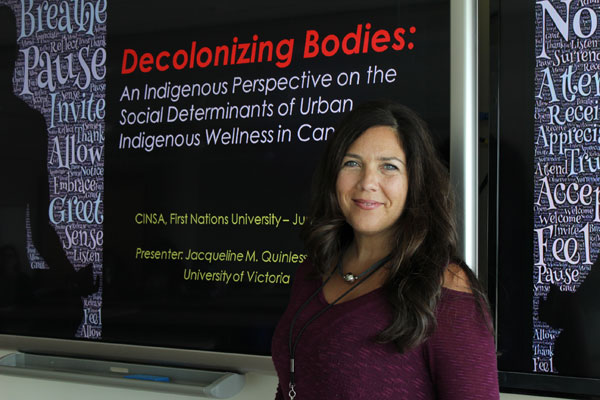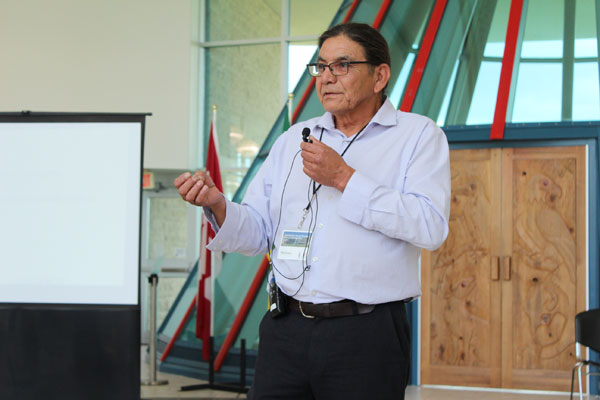Academics present thoughts on improving the urban experience
- Tiffany Head | June 30, 2016
More than 180 Academic scholars, Elders and community members gathered at the 2016 Canadian Indigenous/Native Studies Association (CINSA) at the First Nations University of Canada (FNUC) in Regina.
“It’s been held at different Canadian universities and this is the first time we’ve been the host institution. We’re excited to that because it is also our 40th anniversary,” said Lynn Wells, Vice President Academic at FNUC.
The theme of the conference is Reconciliation through Research: Fostering miýo pimātisiwin in the City.
“There is a real focus on the recommendations of the Truth and Reconciliation Commission and of course the urban issues really border on a lot of issues; health, education, gender, culture, all sorts of things,” said Wells.
Related: Truth and Reconciliation Commission releases its findings
Guided by the theme, the conference features 46 sessions of individual paper presentations, panel sessions, roundtables, workshops, film screening, performance and three keynote speakers.
“The people who are presenting in the conference are academics from across Canada. There is also a strong Elder participation with lots of ceremonial aspects,” said Wells.
Jennifer S. Dockstator, Ph. D. with Elder Michael Thrasher whom she fondly calls “moshom”, held a riveting panel discussion on Widening the Sweet Grass Road: Reconciliation in Practice.
When asked if there was a way to improve the Urban Aboriginal experience she answered, “If there is a way, I think it’s reconnecting with the land and starting there, I know in urban centres there’s not a lot of green space but if there is a way to get connected, community gardening, planting medicine working together with the land with the earth. That might be a start.”
She also mentioned there was a way to find different organizations in the community that might be doing ceremony, to have Elders come together with the youth.
“To start connecting with each other, getting that knowledge the elders have passing down to the next generation and making those connections and developing those relationships,” said Dockstator.
Jacqueline M. Quinless, Ph.D., Sociologist of University of Victoria, also held a panel discussion on Decolonizing Bodies: An indigenous Perspective on the Social Determinants of Urban Indigenous Wellness in Canada.
Quinless believes that in order to improve the urban Aboriginal experience, the first essential step that has to be taken is to decolonize research methods and the ways in which people generate health and wellness outcomes.
“In order to decolonize bodies we have to decolonize wellness and we also have to look at health, we have to look at health not as a deficit model and not from a western way of thinking but ways that are anchored in Indigenous knowledge systems,” she said.
The CINSA conference which represents the growing partnerships between research communities and Aboriginal communities are continually involved in joint efforts to find ways to improve lives for urban Aboriginal residents.
“What conferences are really good at is creating those networks of people who meet each other and learn to work together, work together in communities, and make community contacts that they might not have had and work together to create projects” said Wells.
The CINSA annual conference, co-hosted by the Urban Aboriginal Knowledge Network (UAKN) ran June 22 – 24, 2016.


